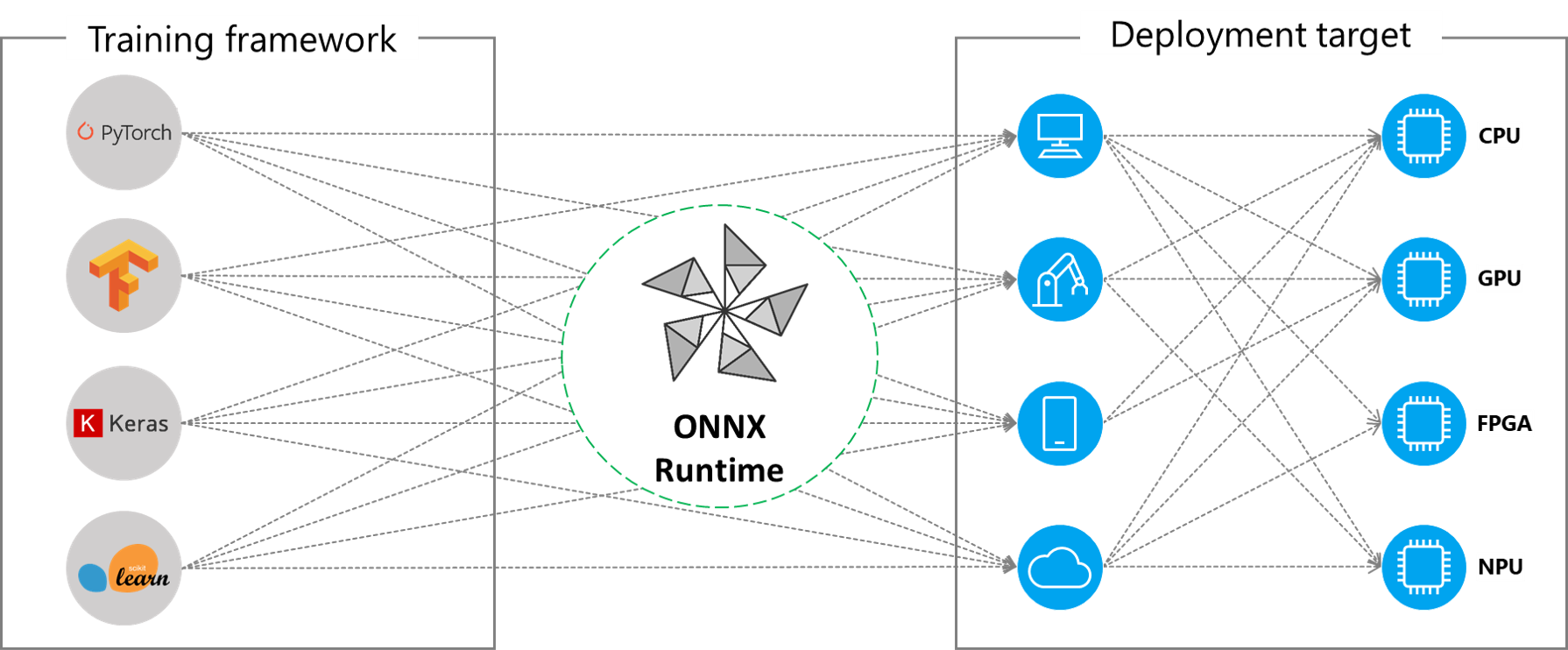pub trait ExecutionProvider: Send + Sync {
// Required methods
fn as_str(&self) -> &'static str;
fn register(&self, session_builder: &mut SessionBuilder) -> Result<()>;
// Provided methods
fn supported_by_platform(&self) -> bool { ... }
fn is_available(&self) -> Result<bool> { ... }
}Expand description
ONNX Runtime works with different hardware acceleration libraries through its extensible Execution Providers (EP) framework to optimally execute the ONNX models on the hardware platform. This interface enables flexibility for the AP application developer to deploy their ONNX models in different environments in the cloud and the edge and optimize the execution by taking advantage of the compute capabilities of the platform.

Required Methods§
Sourcefn as_str(&self) -> &'static str
fn as_str(&self) -> &'static str
Returns the identifier of this execution provider used internally by ONNX Runtime.
This is the same as what’s used in ONNX Runtime’s Python API to register this execution provider, i.e.
TVMExecutionProvider’s identifier is TvmExecutionProvider.
Sourcefn register(&self, session_builder: &mut SessionBuilder) -> Result<()>
fn register(&self, session_builder: &mut SessionBuilder) -> Result<()>
Attempts to register this execution provider on the given session.
Provided Methods§
Sourcefn supported_by_platform(&self) -> bool
fn supported_by_platform(&self) -> bool
Returns whether this execution provider is supported on this platform.
For example, the CoreML execution provider implements this as:
impl ExecutionProvider for CoreMLExecutionProvider {
fn supported_by_platform() -> bool {
cfg!(any(target_os = "macos", target_os = "ios"))
}
}Sourcefn is_available(&self) -> Result<bool>
fn is_available(&self) -> Result<bool>
Returns Ok(true) if ONNX Runtime was compiled with support for this execution provider, and Ok(false)
otherwise.
An Err may be returned if a serious internal error occurs, in which case your application should probably
just abort.
Note that this does not always mean the execution provider is usable for a specific session. A model may
use operators not supported by an execution provider, or the EP may encounter an error while attempting to load
dependencies during session creation. In most cases (i.e. showing the user an error message if CUDA could not be
enabled), you’ll instead want to manually register this EP via ExecutionProvider::register and detect
and handle any errors returned by that function.